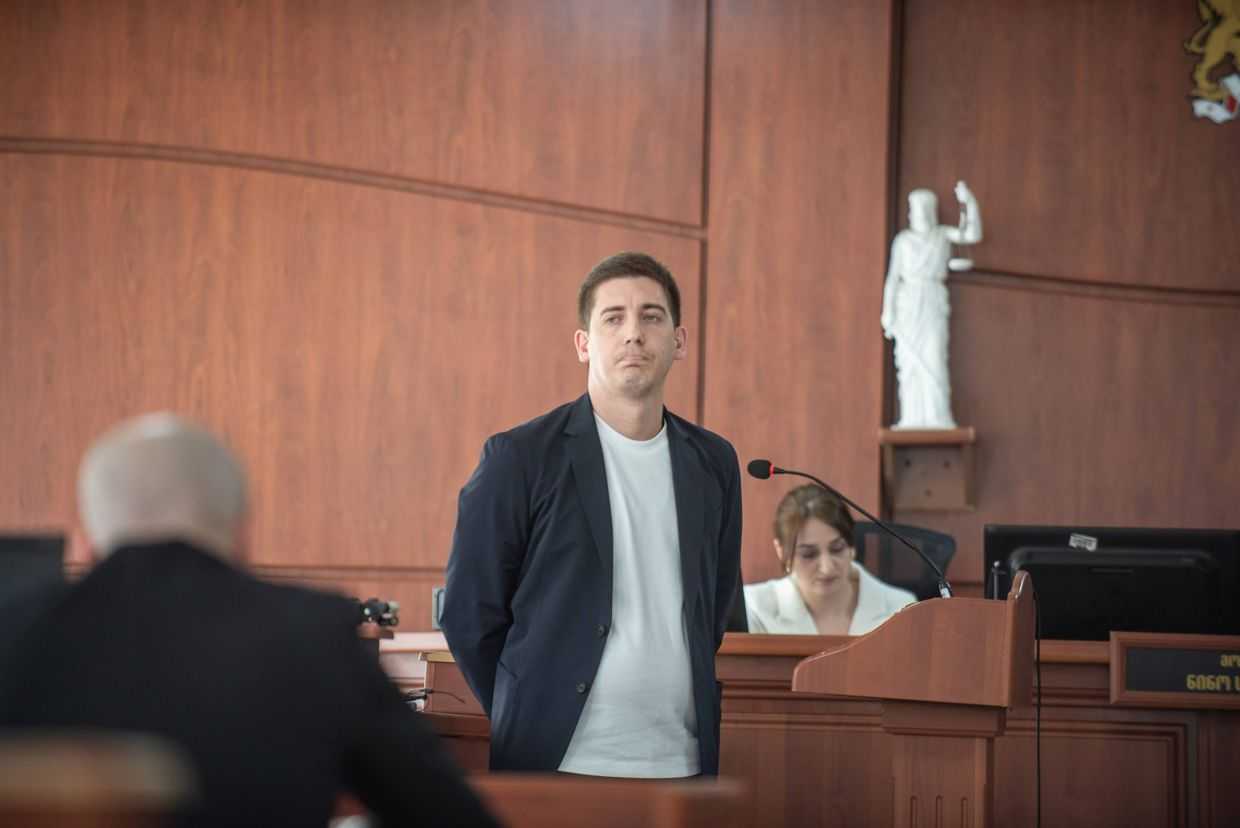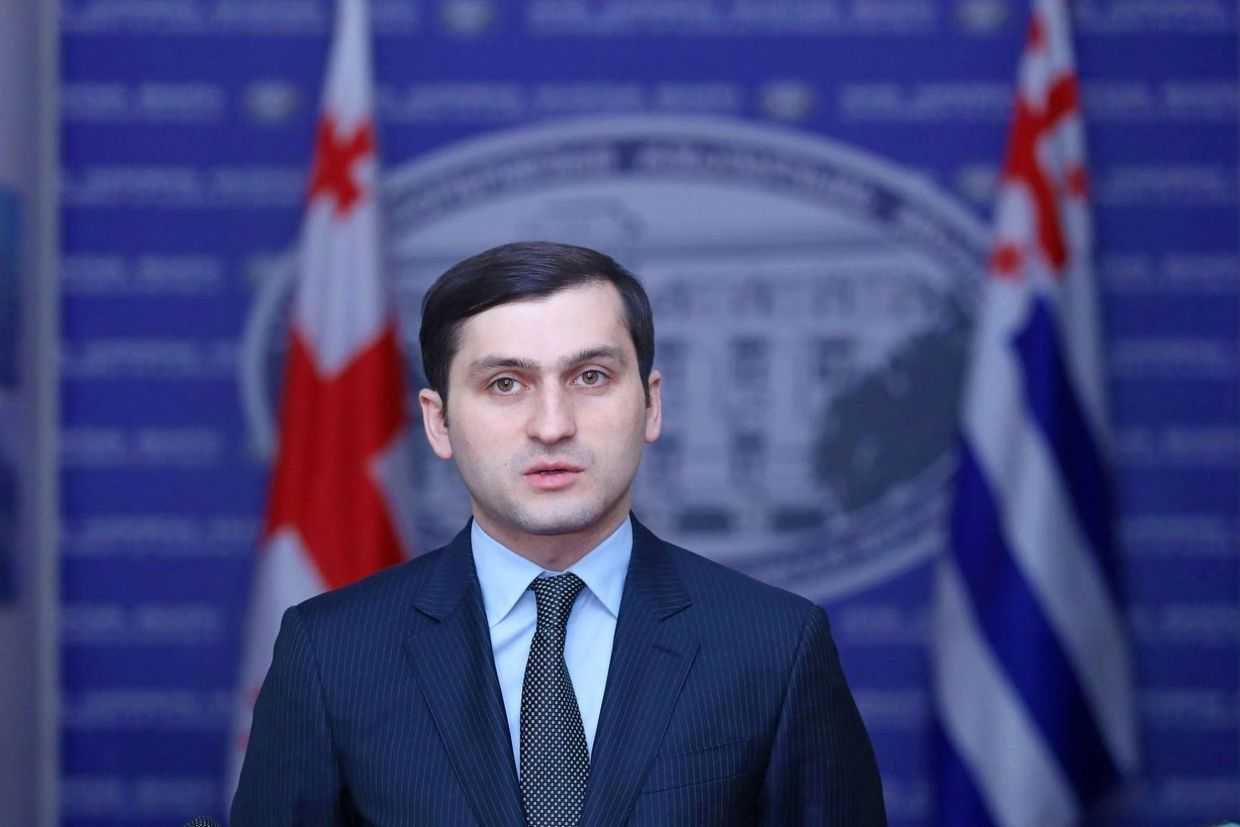
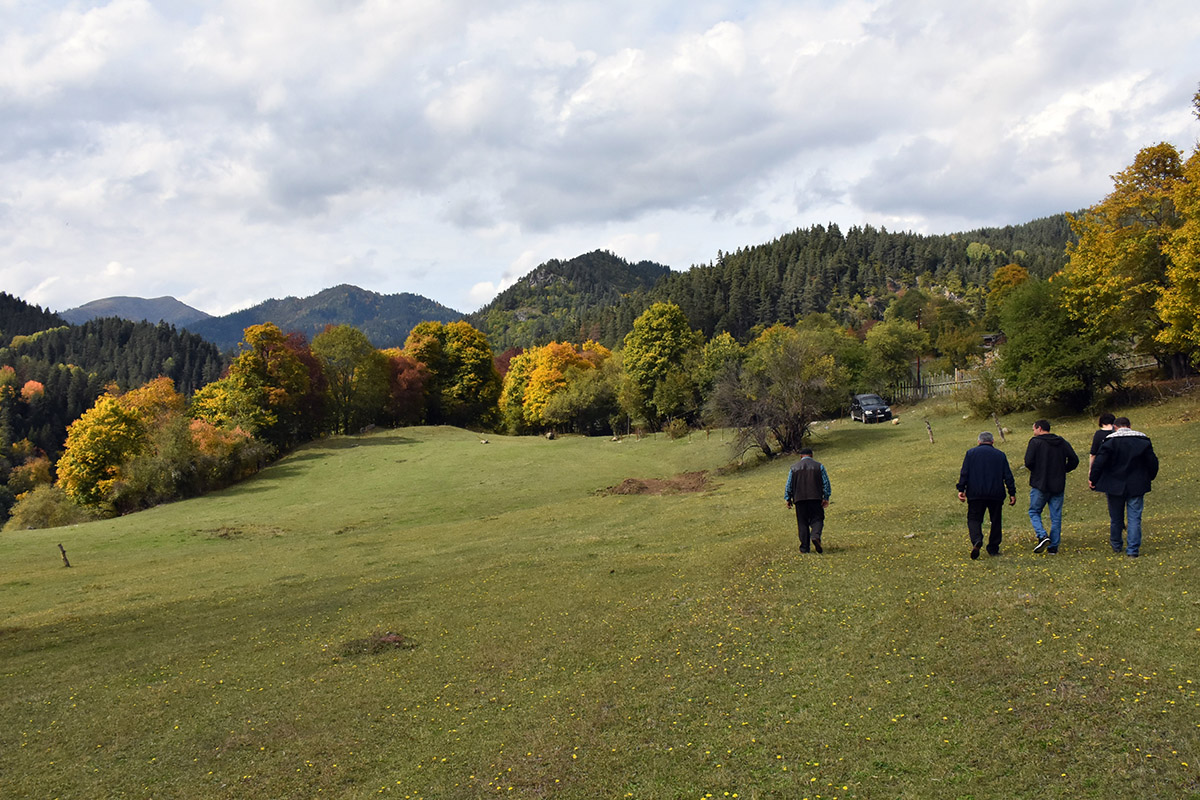
Residents of two villages in southern Georgia are suing the government for transferring land they have used for decades to the Georgian Orthodox Church. They claim the lands are vital for them to sustain their families, but local church officials — who plan to build a monastery in the predominantly Muslim area — don’t share their concerns.
The land in question is a roughly 8-hectare plot lying between the villages of Kikibo and Dertseli in Adigeni Municipality.
Since the 1990s local residents believed the land had belonged to them, until 2018 when the Georgian Orthodox Church claimed ownership of it.
Adigeni Municipality is densely populated with Muslims, and the region has become notorious for religious conflicts, usually resolved to the advantage of local Orthodox clergy.
Both Kikibo and Dertseli are predominantly Muslim villages. In fact, local residents who OC Media spoke with said that there was not a single Christian family living in either of them.
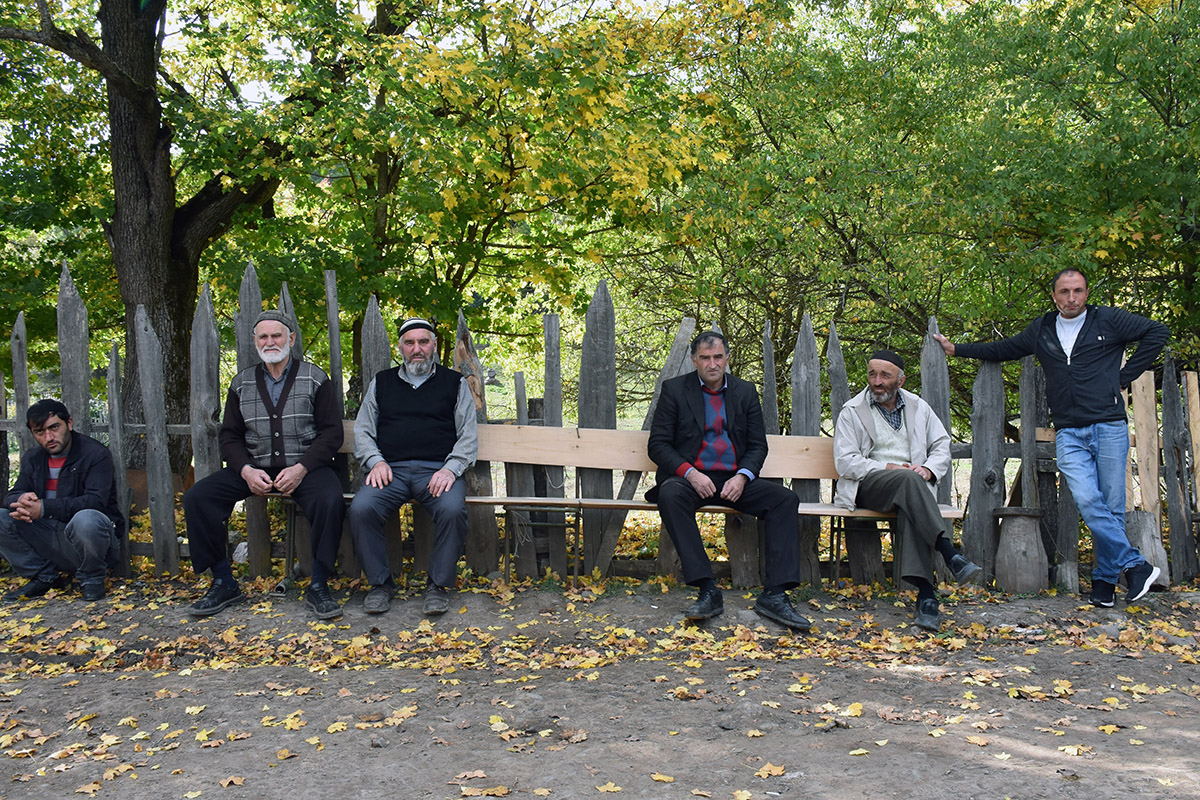
The Church insists that the transaction is completely above board. An influential priest from a local monastery told OC Media that the people in these villages have lands in abundance, while the church does not.
But local residents who have turned to the courts for help say they worry about how they will make it through the winter.
‘A shameless land-grab’
The disputed lands are located in an area once occupied by the village of Kvabijvari. After the village was abandoned, the territory was attributed to Kikibo.
The people now residing in the area are predominantly descendants of Muslim migrants from the neighbouring region of Adjara, who moved here during the Soviet period. Raising livestock is their main occupation and their main source of income. There are few if any alternatives available.
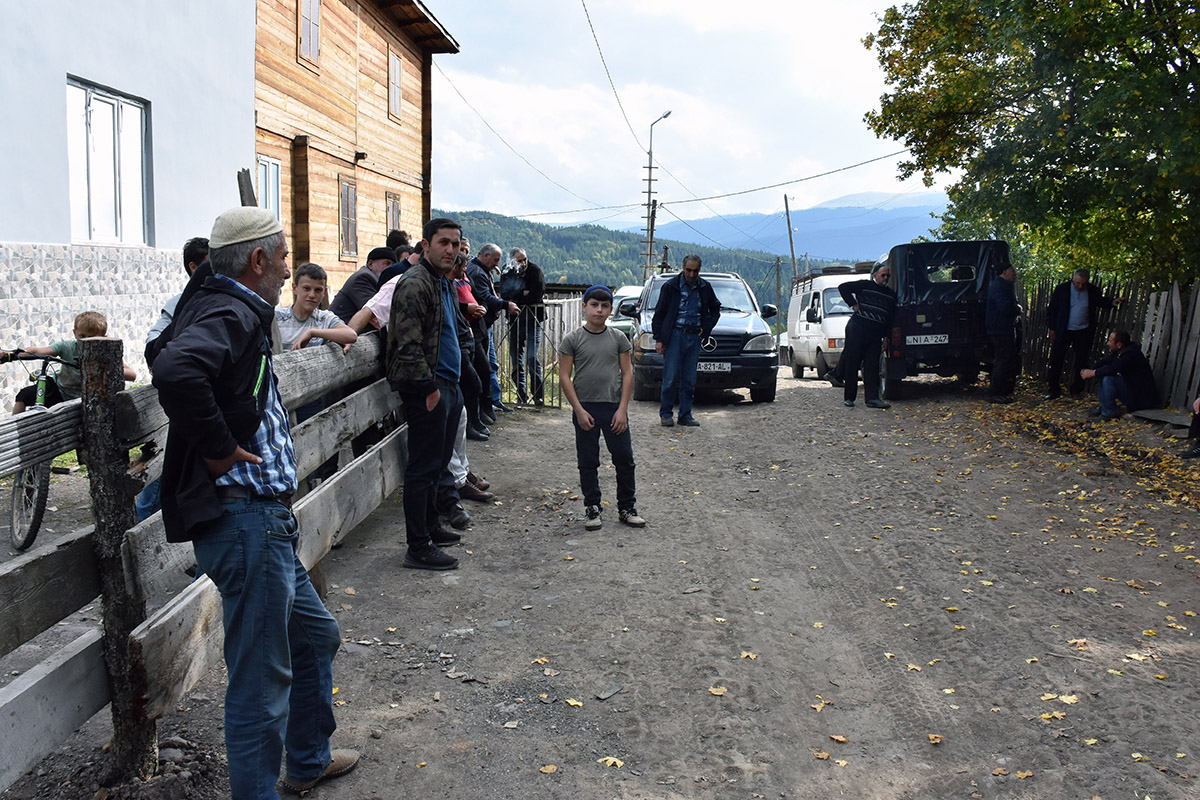
‘I can’t give up this land; it’s my main source of income’, Davit Beridze, one of the applicants named in the lawsuit told OC Media.
According to him, the villagers were given these lands in the land reform program of the 1990s. He added that at a given time, there were up to 16 families living in the two villages and because there was a shortage of land, each family was given no more than a hectare.
He said they still had state-issued documents proving their rightful ownership.
Even though they have been using the land since the Soviet period, and had official documents which attested to their ownership, the land was never registered as their property.
They did not know of the disputed legal status of the until a tractor arrived in the village and started erecting a fence. Only then did they discover that the Georgian Orthodox Church had made a claim on the land.
‘It was like the Germans woke up one morning and discovered that the Berlin Wall had been set up overnight. Out of the blue, we found out that this whole area was marked with poles. We have been using them as pastures, we collected hay, we used it for agriculture’, Shukri Mikeladze, a local resident, told OC Media.
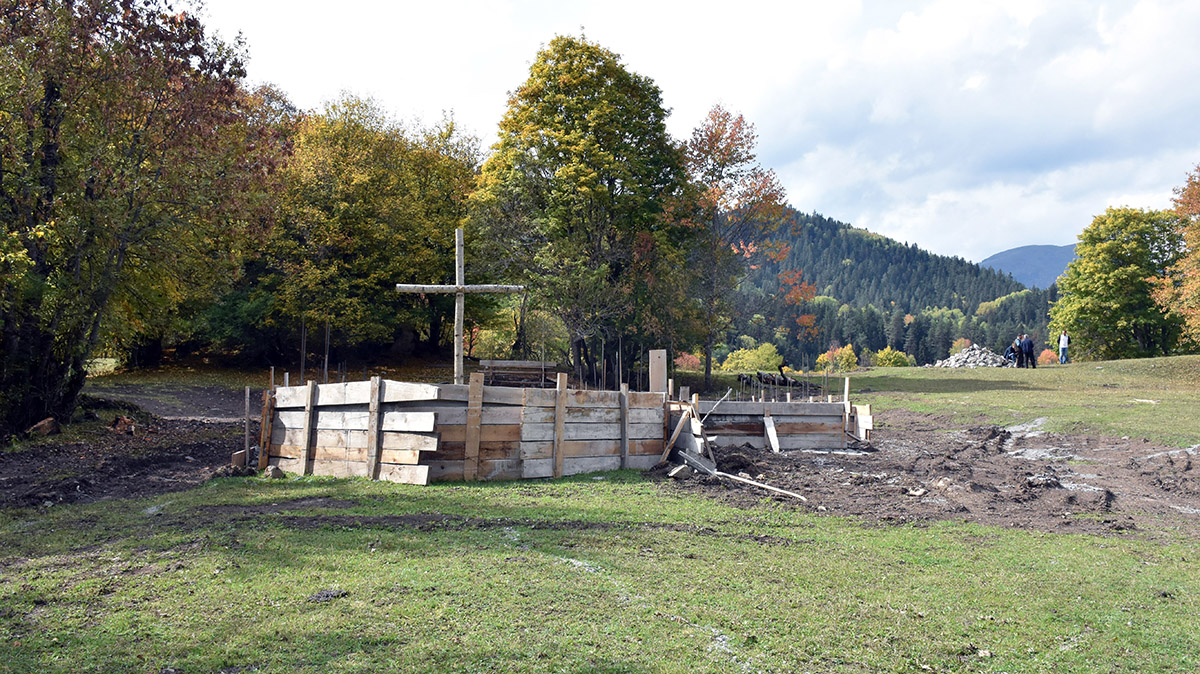
Another local resident, Sergo Beridze, said that it was a shameless land-grab.
‘I fight through the winter for six months and 20 days to sustain my family. Did anybody ask me anything at all? How can I live now that they’re taking this from me? Is this an annexation? These poles mean that they want us out of here’, said Beridze.
The Georgian Orthodox Church made a request to the Ministry of Economy to grant them ownership of the land in March 2018.
In their letter to the ministry, they said that the land contained the ruins of a 10th–11th-century church and that they needed land for agricultural purposes.
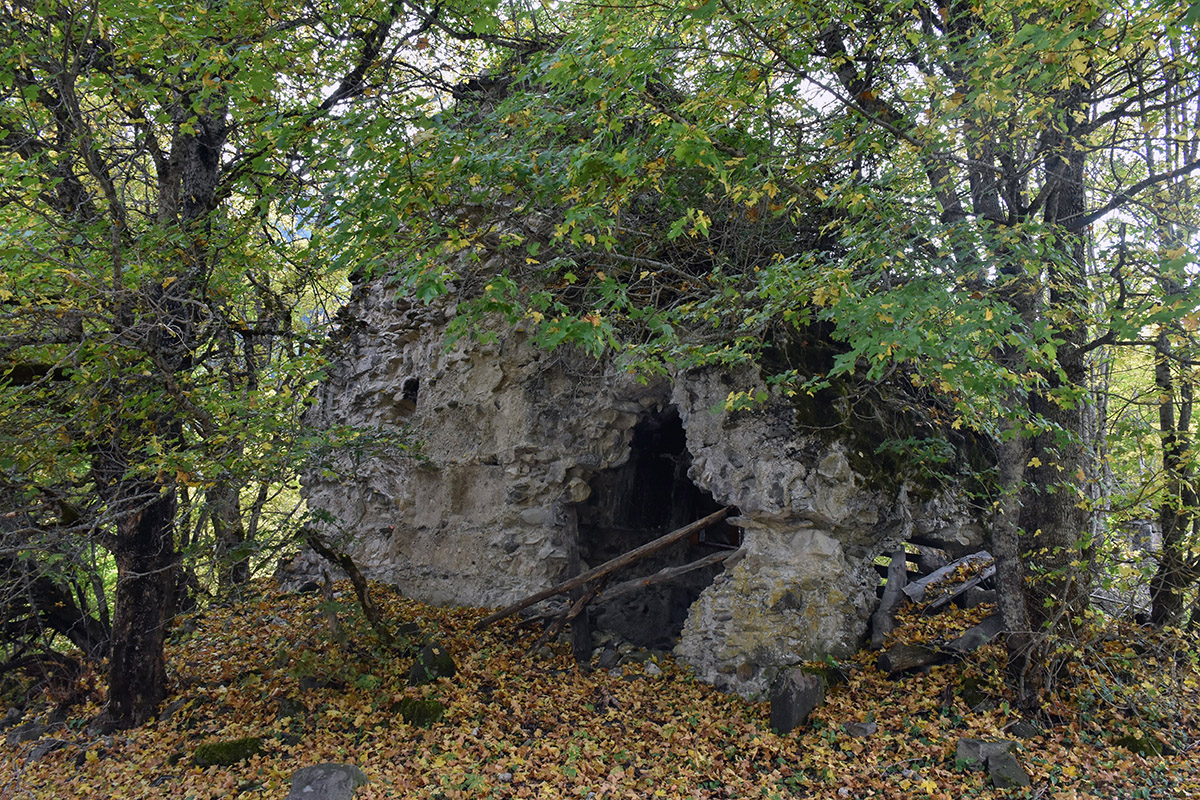
As a result, 8 hectares were granted to the Church in September 2018.
‘We had never even considered registering these lands until we learned the Church was taking them over when they started setting up the poles. We rushed to the Public Registry but found out that there was an overlap [with land registered by the Church]’, local resident Davit Beridze told OC Media.
While local residents claim that they were not informed about the ownership transfer, the Ministry of Economy stated that during their research, no circumstances could be found barring the land transfer.
‘No rights of other persons on these lands were found’, the ministry said in a letter rejecting a complaint filed by the local community.
An unsympathetic church
Within a few metres of the ruins of the old church, the construction of a new one has already commenced. The local community says they do not oppose the construction of a church in the village. On the contrary, they say they are ready to give up one hectare for it.
‘They want to build a church? I’m for it. Each of us will participate and lay a brick. But why are they taking such a large area? We are not opposed to a church, they can build it right in the heart of the village’, said local resident Shukri Mikeladze.
Mikeladze said that Muslims in this region have been under pressure since a confrontation with the Archimandrite Nikoloz Getsadze of the Zarzma Monastery.
Archimandrite Nikoloz Getsadze claims that local Muslims are lying when they say they cannot afford to give up the land.
‘These lands were not theirs but state lands. They own only a hectare and 2,000 square metres per family, the rest is state property. Of course they are lying. They have so much hay, it often rots. Meanwhile, our monastery has no other land over there’, Getsadze told OC Media.
Getsadze is an influential religious figure in the region who has been in several high-profile confrontations with local Muslims.
He was directly involved in a dispute over ruins claimed by both local Christians and Muslims in the village of Mokhe.
One local Muslim man, Tamaz Beridze, told OC Media that Getsadze threatened to break his legs if he dared approach the disputed ruins.
When the local government attempted to demolish the ruins, and erect a new ‘cultural centre’ in their place, a group of local Muslims rallied to protect them. They were severely beaten by police. A thorough investigation did not follow the incident.
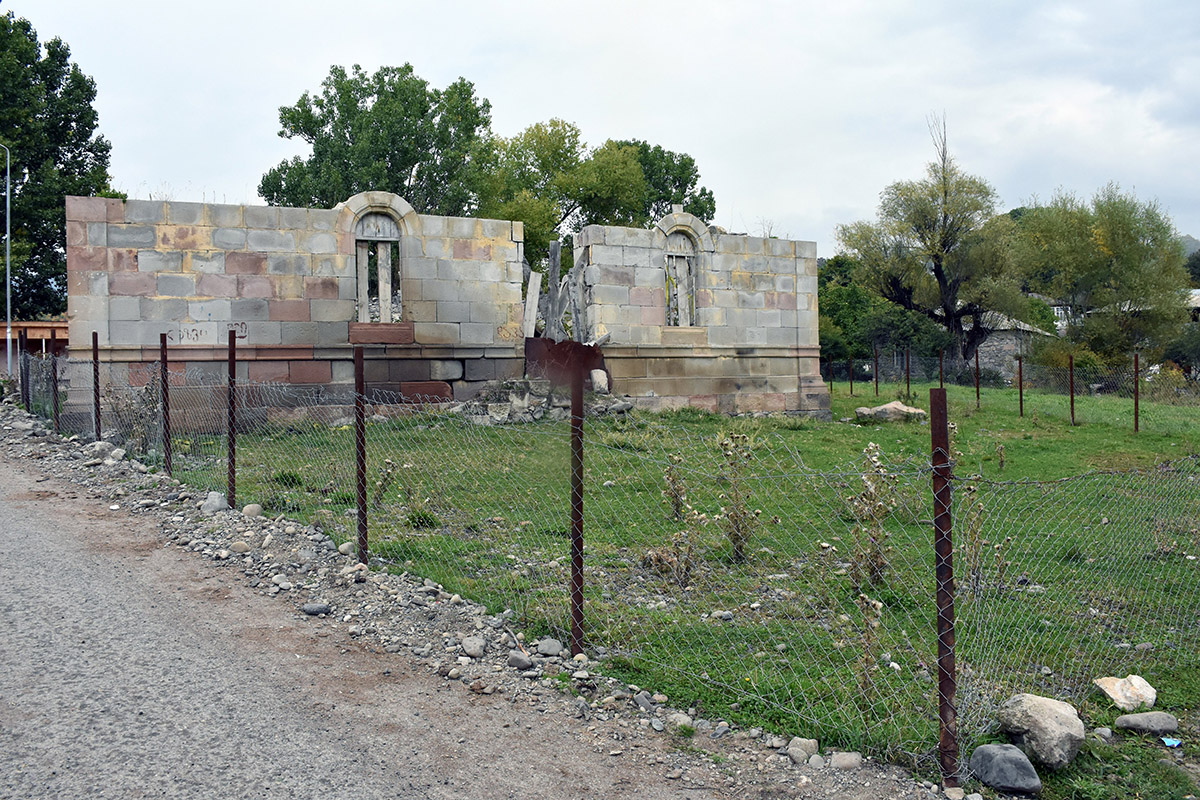
[Read more about developments in Mokhe on OC Media: [Georgia’s Mokhe Muslims ‘threatened by Christian leader’]
In 2013, a newly built minaret on the Chela Mosque in Adigeni District was taken down on the orders of the Revenue Service, with the help of police. Police beat protestors who had opposed the demolition. Twenty-one people were arrested.
Many in the local Muslim community said that local Orthodox Church authorities had gathered signatures asking for the minaret to be taken down.
‘Oppression on religious grounds.’
The local communities in Kikibo and Dertseli filed their lawsuit against the Ministry of Economy in August 2019, after their administrative complaint was rejected by the ministry.
They are being represented in court by the Human Rights Education and Monitoring Centre (EMC), a Tbilisi-based rights group.
On 11 October, EMC called on the government to take into account the negative effects of religious conflicts in this region and urged the Ministry of Economy to acknowledge that their decision to grant lands to the Georgian Orthodox Church was unlawful.
‘Muslims in Adigeni Municipality have experienced unfairness and repression on many accounts since 2013’, Tamta Mikeladze, the head of EMC said on Friday.
‘None of them were thoroughly investigated by the government. None of these cases, which contributed to the alienation between religious groups, were met with positive policies to rebuild trust. In light of this, the government made yet another unlawful decision and created grounds for confrontation. It’s impossible not to call this oppression on religious grounds.’
In 2002, a constitutional agreement between the Georgian state and the Church was signed obliging the state to recompense damage suffered by the Church under Soviet rule. Since then, the Church has received millions of lari and thousands of hectares of land across the country. It also receives certain tax privileges.
An exact figure for the damages the Church suffered under Soviet rule has never been calculated, and neither has it been decided when the state will have repaid this debt.
The Muslims of Adigeni are not alone in feeling hard done by this arrangement. In several villages in Samtskhe-Javakheti, Catholic Christians have been demanding that historically Catholic cathedrals currently owned and used by the Orthodox Church be returned to them. The same is true of the Armenian Apostolic Church.
But for residents of Kikibo and Dertseli, state policy is far from their minds.
‘I couldn’t afford to build my house on this land, that’s why I moved to another village’, said local resident Jumber Beridze. ‘I still use this land because I don’t have much there either. If they take this land away from me, I will have to move away from that village too.’


